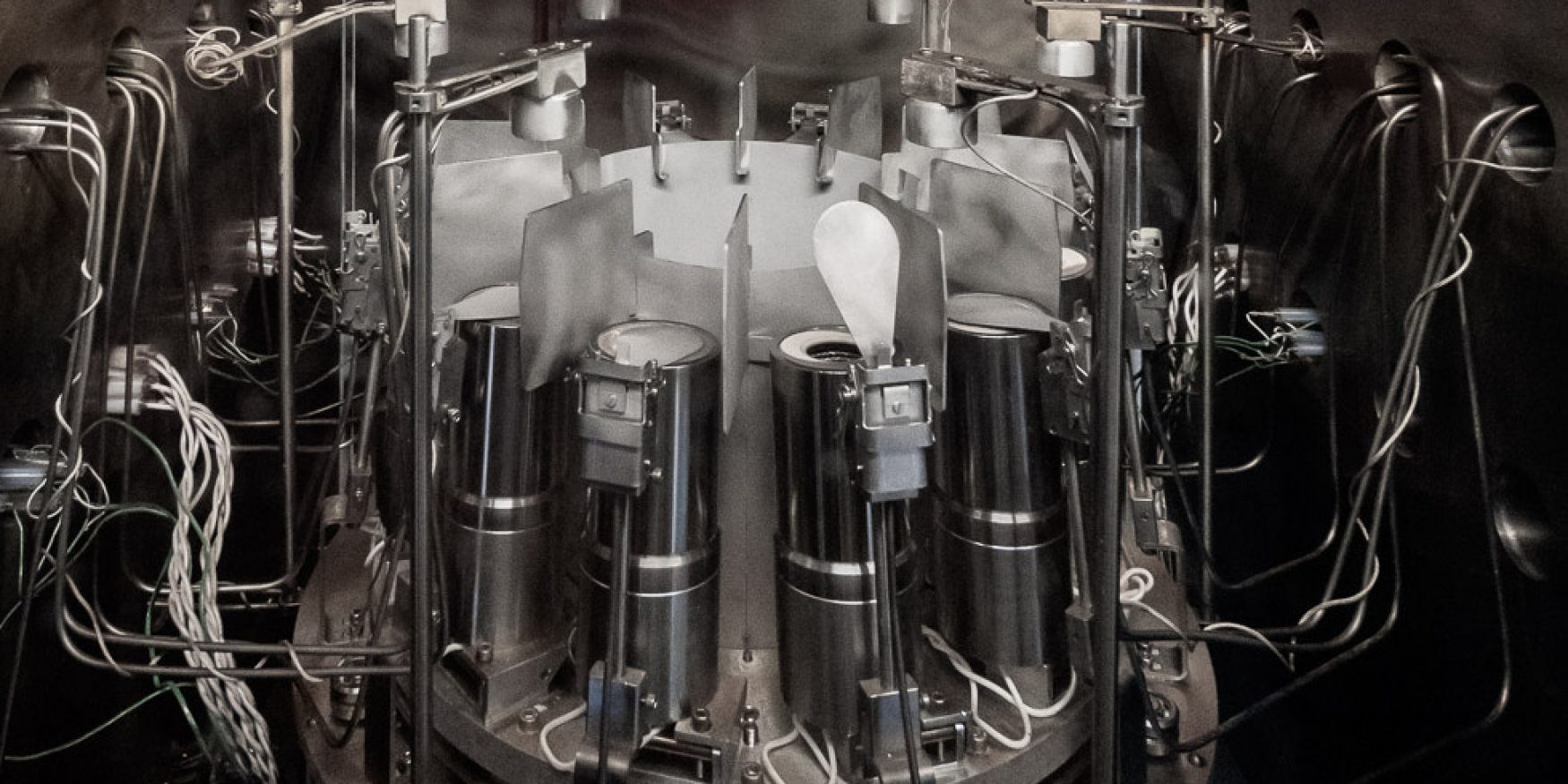Thermal Sublimation
Thermal evaporation is a process carried out in a vacuum chamber to deposit thin films on a substrate. This is done by heating a solid material to its sublimation point using resistive heating.
Our strengths :
- Our thermal sublimators are multi-source (metal, MeOx and organic) and operate under very high vacuum (10-7 Torr). The method is ideal for the production of complex layer stacks with excellent thickness control and on different substrates (glass, steel, polymers, textiles, etc.). The method also allows the co-evaporation of several species, so as to create multi-material and hybrid layers with precise control of the proportion of constituents (e.g. doped layers).
